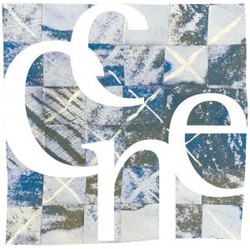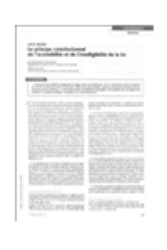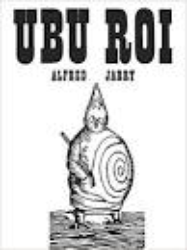Dec. 2, 2025
Law by Illustrations

🌐Follow Marie-Anne Frison-Roche on LinkedIn
🌐Subscribe to the Newsletter MAFR Regulation, Compliance, Law
🌐Subscribe to the video newsletter MAFR Overhang
🌐Subscribe to the Newsletter MaFR Law & Art
____
► Full reference : M.-A. Frison-Roche, "Fiction🎬The talks in the Town : what can a law professor do about it?", article from the Newsletter Law & Art, December 2025.
____
____
► Summary of this article : This 1942 film seems to have left little trace. However, the main character, an innocent man whom the villain manipulates into being designated as the culprit by the small town's population, leading him to behave like a guilty person, is played by Cary Grant.
This film inspired lawyers even more.
And even more so law professors, because it was a law professor, the dean of Harvard Law School, who saved the innocent man who had been caught in the trap.
And even more so today, since it was by playing on rumours, by creating them from the outset, in what we would call disinformation, that the powerful villain intended to win and, in the process, become mayor of the town, after escaping bankruptcy by setting fire to his own factory, a crime he blames on the innocent man thrown to the wolves of public opinion as citizens gather in the square. It's almost as if we were there...
____
🔓read the article below⤵️

Updated: Sept. 8, 2018 (Initial publication: April 30, 2018)
Publications

► This working document was intended to serve as a support for a conference pronounced in French in the conference Droit et Ethique ( Law & Ethics) of May 31, 2018 in a symposium organized by the Court of Cassation and the Association Française de Philosophie du Droit. French Association of Philosophy of Law on the general theme Law & Ethics.
See a general presentation of this conference.
Rather, it has served as a support for the article to be published in the Archives de Philosophie du Droit (APD). This article is written in French.
► Summary: It is through the Law that the human being has acquired a unity in the West (I). What religion could have done, the Law also did by posing on each human being the indetachable notion of him of "person" (I.A). But this is what is challenged today, not the personality and the power that the human being has to express his freedom but the unity that implies in the disposition that we have of ourselves in repelling the desire that others have always had to dispose of us. Current law tends to "pulverize" human beings into data and transform into neutral legal services what was considered before as the devouring of others. The legal concept of "consent", ceasing to be proof of a free will but becoming an autonomous concept, would suffice (I.B.).
To prevent the reigning of the "law of desires", which merely reflects the adjustment of forces, we must demand here and now the ethical sovereignty of Law, because Law can not be just just be just the interests adjustment (II). We can form this request if we do not want to live in an a-moral universe (II.A), if we see that the unity of the person is the legal invention that protects the weak human being (II.B.). If we admit this imperative, then we must finally ask who in the legal system will express and impose it, especially the legislator or the judge, because we seem to have lost the ability to recall this principle of the Person on which the West was so centered. But the principles that are no longer said disappear. There would then remain only the case-by-case adjustment of interests between human beings in the world field of particular forces. At this yardstick, Law would be more than a technique of securisation of particular adjustments. Law would be reduced at that and would have lost its link with Ethics. (II.C).
Jan. 19, 2017
Hearings by a Committee or Public organisation

► Référence complète : M.-A. Frison-Roche, Le droit à propos de la pratique de la GPA. Résolutions des cas et positions de principe, intervention devant le groupe plénier du Comité Consultatif National d'Éthique (CCNE), 19 janvier 2017.
____
► Résumé de l'intervention : Le fait pour une femme de porter un enfant et de le remettre à la naissance à un couple, dont l'homme est le plus souvent le père biologique, est une pratique qui remonte à des temps si anciens que le droit romain avait réglé déjà les difficultés juridiques qui en résultent. Puis la pratique avait si ce n'est disparu mais ne s'était pas développée. Ces faits restaient en marge d'un droit qui pouvait demeurer silencieux. Jusqu'à ce qu' un médecin, en France, et sous couvert d'une association "Les cigognes", propose à des jeunes filles de devenir disponibles pour que le désir d'enfants trouve une voie de concrétisation. Le marché par l'offre était né. Ce ne fût pas le Législateur qui réagit, trop lent, trop lourd, trop abstrait. Ce fût le procureur, qui réagit et saisit le juge.
Car c'est avant tout affaire de construction de marché par l'offre, une offre faite à l'égard de personnes malheureuses que l'on persuade qu'ils sont par avance des "parents" du seul fait qu'ils désirent l'être. Un marché que l'on construit par un produit qui est l'humain, que l'on produit par une commodité qui est le corps des femmes, tant qu'on n'a pas construit une machine permettant de s'en passer.
Ainsi, les juges ont été en premier. Et on répondait nettement. "A la française", c'est-à-dire par principe. Saisis par principe, ils ont répondu par principe. En 1991. Et ce principe fût simple : Non. Le fondement fût aussi très simple : les femmes sont des êtres humains qui sont donc des fins en soi et non des moyens. Les enfants sont des êtres humains, qui ne peuvent être engendrés à seule fin d'être cédés (même gratuitement). Le Législateur le suivit par les lois de "bioéthique". Le principe est intangible. Le temps, les pratiques, la variété des cas, des mœurs et des pays, ne font rien à l'affaire.
Mais les entreprises avaient lancé la puissance du marché, qui est la "loi du désir". Et qui ne peut se développer elle-même que par le Droit.
Un droit qui a été d'une toute autre nature, bien que lui aussi judiciaire. Un droit de Common Law. Il ne s'agit pas de dire qu'il soit moins bien ou mieux, mais il est différent. Il s'agit de ne pas évoquer de "principe" mais de repérer dans la "situation" du cas concret présenté au juge les "intérêts" et de faire la "balance des intérêts", ce qui est le reflet de ce qui s'opère sur un marché efficient, le droit de Common Law étant la référence pour l'Analyse économique du droit, inventé à l'Université de Chicago dans les années 1960.
Au Royaume-Uni et aux États-Unis, notamment en Californie, l'idée a donc été de veiller à l'équilibre entre les intérêts concrets des parties à l'arrangement. Pas moins, mais pas plus. Est alors repris un raisonnement de droit économique, c'est-à-dire un raisonnement qui mêle droit des contrats, procédure et contrôle a priori et a posteriori du juge : comme il faut veiller à l'équilibre entre les intérêts, c'est un raisonnement de "droit de la régulation".
Un consentement éclairé, une rencontre des consentements, un lien de bonne qualité, un juge ou une autorité publique veillant à ce que les intérêts soient préservés ; les intérêts de l'enfant prévalant sur les autres s'il y a conflit.
Les deux raisonnements auraient pu ne pas communiquer. Les personnes vivant dans des pays de Civil Law vivant sous le principe de l'indisponibilité des personnes, y compris à elles-mêmes, tandis que les personnes vivants dans des pays de Common Law vivent sous le mécanisme du désir et du consentement, le juge veillant à l’équilibre des intérêts. Si les personnes veulent vivre sous la loi du désir, il leur suffit d'aller vivre en Californie.
Mais les entreprises n'ont pas voulu en rester là. Et c'est alors que les juges ont été saisis, non plus pour que le Droit arrête la GPA, pour que le premier raisonnement, de principe, l'arrête d'un trait, à la demande du ministère public, mais au contraire pour que le second raisonnement, casuistique, grignote petit à petit, à la demande des intéressés, le principe, par pragmatisme, pour régler des questions de transcription, de papier, etc.
Car les entreprises proposant de satisfaire le désir d'un nouveau-né biologique avec un lien de filiation incontestable sont en train d'utiliser le droit - c'est avant toute chose une affaire juridique - pour permettre d'aller prendre un lien de filiation efficace. Il est essentiel de mesurer comme cela s'est passé et à quel point le droit européen et français sont fondamentalement différents du droit américain et britannique, car pour l'instant les premiers sont construits sur la biologie et donc sur le lien paternel, alors que les seconds sont construits sur la volonté et le lien de fait. Le marché de la GPA ne peut prospérer - régulé ou non - que sur le second modèle, qui est proposé à toutes les juridictions et tous les législateurs par les entreprises.
Il convient d'exposer les décisions qui illustrent cela et qui sont en cours d'adoption (I). Cela permet de mesurer les questions qui se posent, casuistiques et de principes, car le Droit a toujours mêlé la dimension concrète, voire triviale des situations en cause et les principes qui y sont impliqués (II).
____
lire les développements ci-dessous
Jan. 28, 2000
Publications

Référence complète : BARANES, W. et FRISON-ROCHE, M.-A., , Le principe constitutionnel de l’accessibilité et d’intelligibilité de la loi, D.2000, chron., pp.361-368.
June 17, 1896
Thesaurus : Doctrine

Père Ubu : Puisque nous sommes dans le pays où la liberté est égale à la fraternité, laquelle n'est comparable qu'à l'égalité de la légalité, et que je ne suis pas capable de faire comme tout le monde et que cela m'est égal d'être égal à tout le monde puisque c'est encore moi qui finirai par tuer tout le monde, je vais me mettre esclave, Mère Ubu !
Jarry, A., Ubu Roi. 1896